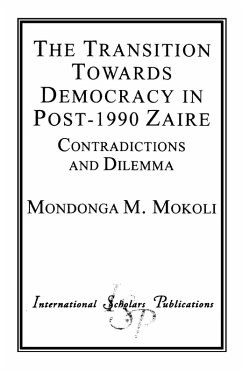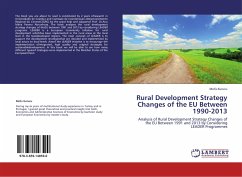This timely book, written by a Zairean sociologist, provides a useful evaluation of Zaire's transition from a one party dictatorship to a multiparty democracy. The in-depth causes of this failed transition are rooted in Belgian colonialism and, more importantly, in the nature and the role of the post-colonial state that Mobutu Sese Seko and his associates have engineered and implemented in Zaire for more than three decades. Instead of social progress, this transition period has been a political maneuver geared to sustain the status quo and the kleptocracy in their best interests, but at the expense of most Zaireans. It has prompted Post-1990 Zaire from a stage of chaos to one of a complete collapse of socio-economic and political structures. Feudalistic rationality, anarchy, pillage, abject poverty, refugee crisis and armed conflict, which are likely to lead to the destabilization of the whole Central African Region, are among the significant indicators of this failed transition. The book calls for free market rationality and socio-economic development at the grass roots level as the prime mover that can recreate, empower and free the Zairean civil society in order to put the democratic transition back on track. This is a necessary and a sufficient condition that will enable this civil society to make appropriate choices of its representatives, who can design and set up social structures conducive to sustainable democracy.
Hinweis: Dieser Artikel kann nur an eine deutsche Lieferadresse ausgeliefert werden.
Hinweis: Dieser Artikel kann nur an eine deutsche Lieferadresse ausgeliefert werden.







